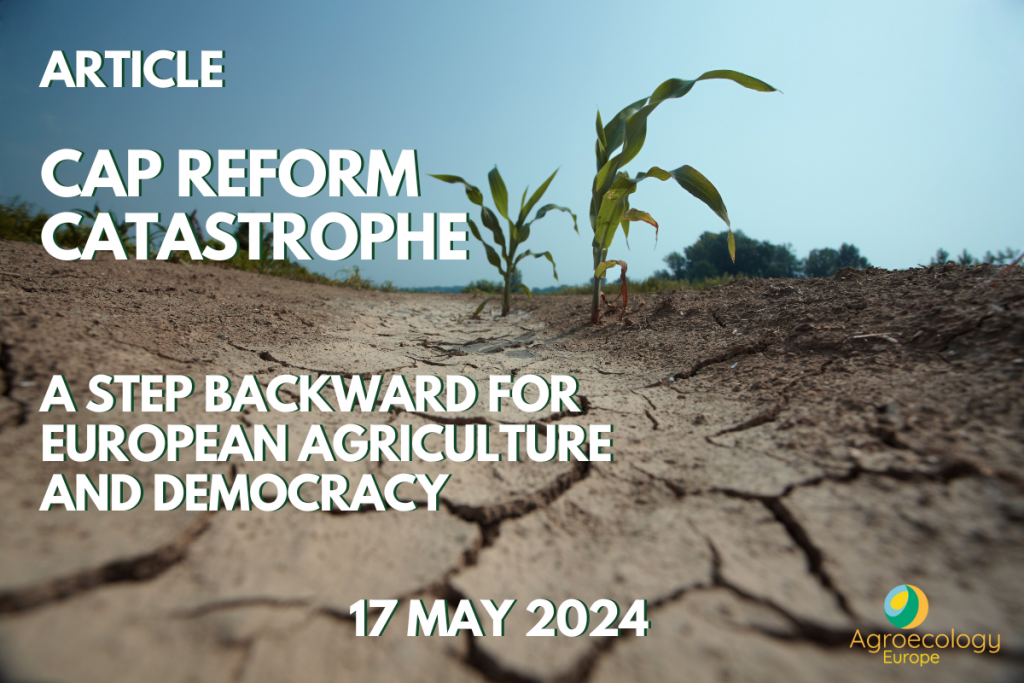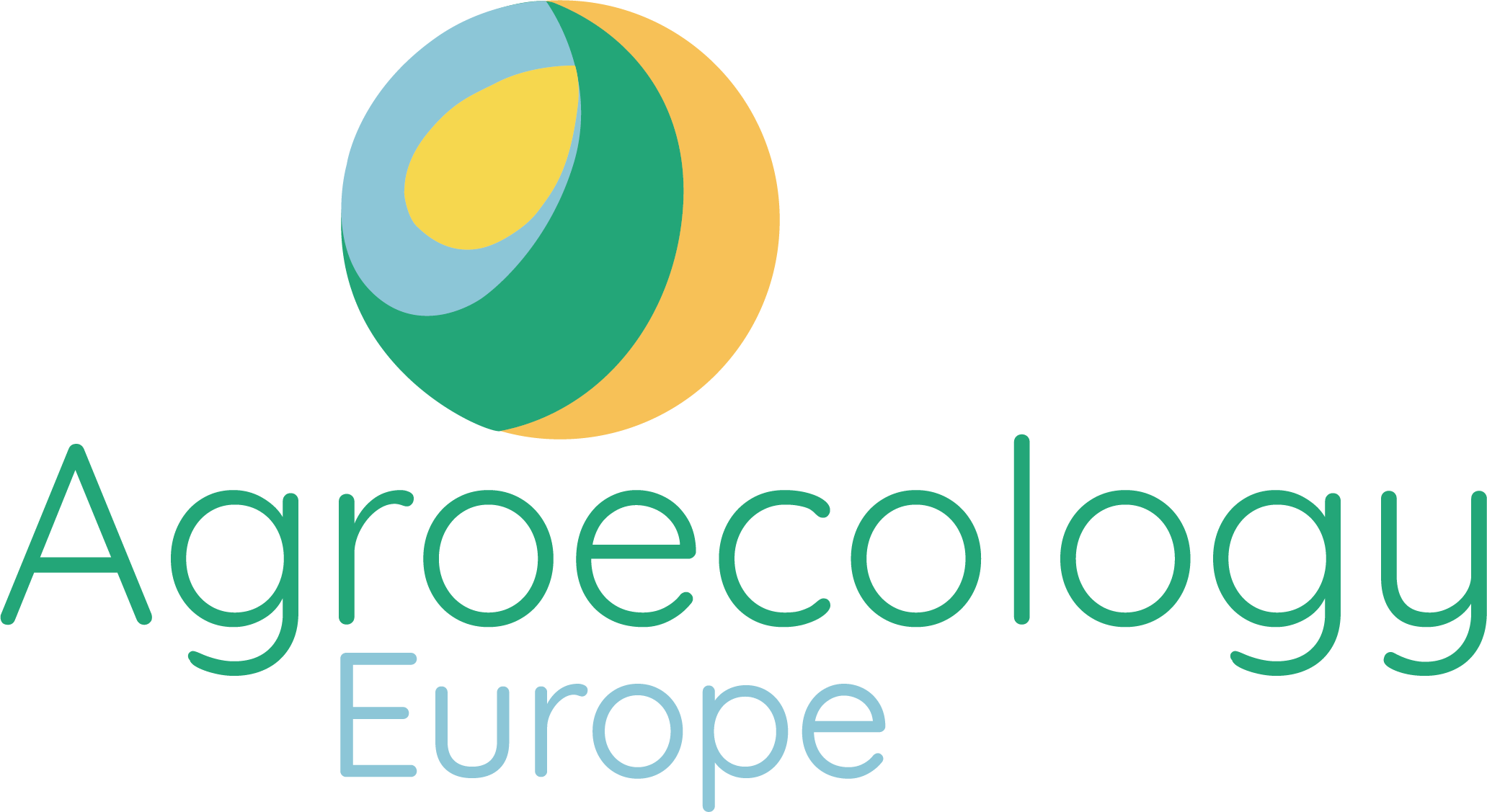A Step Backward for European Agriculture and Democracy

The recent reform of the Common Agricultural Policy (CAP) is disastrous news for EU farmers, nature, health, and the common good. Deleting environmental measures from agriculture policy is the wrong answer to the farmers’ protests sweeping across Europe this year. It perpetuates the false narrative that posits farmers against nature. Instead of addressing the pressing needs of providing economic, technical, and legal support and incentives for farmers to engage in sustainability, the reforms play to the demands of agribusiness. Instead of progress, it sets back Europe’s transition to sustainable, resilient, and equitable agricultural and food systems by several decades. It is a step towards the point of no return: irreversible climate change and biodiversity loss jeopardising humanity’s ability to feed itself in the medium and long-run.
The measures proposed by the Commission and adopted by the European Parliament and the EU Council on Monday 13 May 2024 prioritise short-term political gains and demonstrate climate scepticism instead of real agricultural reforms in the interest of farmers.
All Member States, except for Germany which abstained, voted in favour of these detrimental reforms:
- Fallow lands: designating “non-productive” areas crucial for biodiversity preservation voluntarily, which questions Europe’s commitment to sustainable agriculture. (GAEC 8)
- Crop rotation: replacing crop rotation with diversification overlooks the essential role of rotation in disease control and pesticide reduction. (GAEC 7)
- Permanent meadows: shifting from preserving permanent meadows to favouring intensive cereal cultivation undermines efforts to maintain carbon sinks and biodiversity. (GAEC 1)
- Soil management during sensitive periods: Loosening obligations and increasing flexibility in soil management during critical periods risks exacerbating land degradation.
- Extreme weather events: offering more exemptions instead of proactive measures to protect agricultural systems from increasingly frequent extreme weather events reduces farm resilience.
All of these measures leave farmers more vulnerable in the long run and will only deepen their grievances. The adoption of natural, holistic disease control methods over costly and environmentally hazardous chemical inputs emerges as a pragmatic imperative for farmers. Soil degradation and desertification exacerbate land unsuitability for agricultural purposes, posing significant challenges to sustaining farming practices. Moreover, recurrent exposure to extreme weather events such as floods and droughts has catastrophic repercussions for agricultural enterprises, further exacerbating economic vulnerabilities. Diminished soil carbon levels coupled with dwindling agrobiodiversity further compound profitability concerns within the agricultural sector. Thus, the integration of ecologically sustainable strategies becomes indispensable for safeguarding both environmental resilience and agricultural profitability. The current allocation mechanisms of the CAP, primarily based on land area rather than the quality of practices or labour intensity, need revision to incentivise and support agroecological approaches.
As President of Agroecology Europe Lili Balogh points out, “This reform goes against the tide of history and is in denial of the real risks associated with food security in Europe. At a time when strategic dialogues are in full swing, this reform is a carte blanche given to climate change and biodiversity deniers and a blow to democracy, science, and the common good. There is an urgent need for strong and consistent political signals alongside financial, technical, legal, and moral support for farmers to facilitate the transition towards more sustainable, resilient, and fair practices.”
The reform process was rushed and politicised, lacking democratic legitimacy. Out of the mere four farming associations consulted, only one advocated for these revisions. The absence of comprehensive impact assessment, token consultations, and disregard for the input of important agricultural stakeholders prove that decision-making is detached from realities on the ground.
As the upcoming European elections approach, it is imperative to resist the combined onslaught of agribusiness interests and populist rhetorics. Europe needs a Common Agricultural Policy aligned with current ecological and social imperatives and fosters land-sharing, biodiversity protection, generational renewal, and agricultural practices that not only adapt to but also mitigate climate change. The status quo jeopardises the viability of our agricultural systems and the liveability of our planet for future generations. The post-2027 CAP must make the agroecological transition a strategic priority. The upcoming elections (6-9 June 2024) are an opportunity to enact change and elect strategic leaders who respect the priorities, needs, and wellbeing of European citizens and the farming community.
Further analysis of engaged stakeholders:
Press Release: European Parliament’s reckless vote pushes farmers further into the abyss by scrapping CAP’s green architecture. BirdLife Europe and Central Asia, 24 April 2024. Link here
Green Light Now, Green Fight Later – CAP Fast Track Risks Legal Wrangle. Natasha Foote, ARC2020, 26 April 2024. Link here
Press Release: European Parliament muzzles democratic debate by pushing forward with urgency procedure on the CAP reform. European Environmental Bureau, 11 April 2024. Link here
